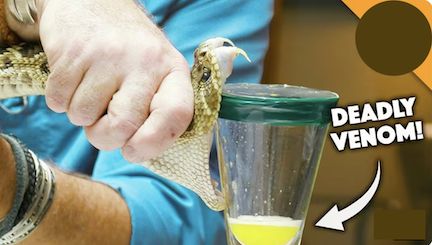Sin Quotes
"The sin nature of man is the only religious doctrine that can be scientifically, empirically verified. All you have to do is observe people." G.K. Chesterton (1874 – 1936) was an English writer, lay theologian, poet, philosopher, dramatist, journalist, orator, literary and art critic, biographer, and Christian apologist.
"Sin is the best news there is ... because with sin there's a way out. You can't repent of confusion or psychological flaws inflicted by your parents--you're stuck with them. But you can repent of sin. Sin and repentance are the only grounds for hope and joy, the grounds for reconciled, joyful relationships." John Alexander was a 21st century American pastor, teacher and author who devoted his life to the study of church and Christian community.
"There are only two kinds of people: sinners who think they are saints, and saints who know they are sinners." Author Unknown
“The Bible will keep you from sin, or sin will keep you from the Bible.” Dwight L. Moody (1837 – 1899),was an American evangelist and publisher, and founder of the Moody Church, the Moody Bible Institute, and Moody Publishers.
"It is after you have realized that there is a real Moral Law, and a Power behind the law, and that you have broken that law and put yourself wrong with that Power--it is after all this, and not a moment sooner, that Chrsitianity begins to talk." C.S. Lewis (1898 – 22 November 1963), was a novelist, poet, academic, medievalist, literary critic, essayist, lay theologian, broadcaster, lecturer, and Christian apologist, best known for his works MERE CHRISTIANITY and THE CHRONICLES OF NARNIA.
“The worst sin toward our fellow creatures is not to hate them, but to be indifferent to them: that's the essence of inhumanity.” George Bernard Shaw (1856 – 1950) was a famed Irish playwright and a co-founder of the London School of Economics.
“If nothing else, there's comfort in recognizing that no matter how much we fail and sin, death will limit our suffering.” Chuck Palahniuk (1962 - ) is an American novelist and freelance journalist.
“Sin has many tools, but a lie is the handle which fits them all.” Edmund Burke (1729 – 1797) was an Irish statesman, author, orator, political theorist, and philosopher.
“Man's sin is in his failure to live what he is. Being the master of the earth, man forgets that he is the servant of God.” Abraham Joshua Heschel (1907 –1972) was a Polish-born American rabbi and one of the leading Jewish theologians and Jewish philosophers of the 20th century.
“It will never do to plead sin as an excuse for sin, or to attempt to justify sinful acts by pleading that we have an evil heart. This instead of being a valid apology, is the very ground of our condemnation.” Archibald Alexander (1772 – 1851) was an American Presbyterian theologian and professor at the Princeton Theological Seminary.
“One of the peculiar sins of the twentieth century which we've developed to a very high level is the sin of credulity. It has been said that when human beings stop believing in God they believe in nothing. The truth is much worse: they believe in anything.” Malcolm Muggeridge (1903 – 1990) was a British journalist, author, media personality, and satirist.
“God had one son on earth without sin, but never one without suffering.” Saint Augustine (354 – 430) was an early Christian theologian and philosopher whose writings influenced the development of Western Christianity and Western philosophy.
“Everything that used to be a sin is now a disease.” Bill Maher (1956 - ) is an American political satirist, writer, producer, television host, and stand-up comedian.
“All human sin seems so much worse in its consequences than in its intentions.” Reinhold Niebuhr (1892 – 1971) was an American theologian, ethicist, and seminary professor, best known as author of The Serenity Prayer.
“One leak will sink a ship: and one sin will destroy a sinner.” John Bunyan (1628 – 1688) was an English writer and preacher best remembered as the author of the religious allegory The Pilgrim's Progress.
“Sin is too stupid to see beyond itself.” Alfred Lord Tennyson (1809 – 1892) was Poet Laureate of Great Britain and Ireland during much of Queen Victoria's reign and remains one of the most popular British poets.
“The reality of loving God is loving him like he's a Superhero who actually saved you from stuff rather than a Santa Claus who merely gave you some stuff.” Criss Jami (1987 - ) is an American poet, essayist, existentialist philosopher.
“Men will allow God to be everywhere but on his throne.
Many of the above quotes provide their own points of application. They do not necessarily represent the views of Orthodox Christianity; neither do they necessarily represent the views of Illustration Exchange.
Removing Stains
In a sermon delivered by the late, great Haddon Robinson, he spoke about the stain of sin and its remedy. While the exact text is not currently available, the following is inspired by various accounts of Robinson’s sermon entitled The Stain of Sin::
Consumer Reports magazine once published a booklet with an intriguing title: How to Clean Practically Anything. The book offered advice on which solvents work best for removing all kinds of stains. Since my clothes often get stained, I really appreciated that book.
Did you know that glycerin can remove ballpoint ink stains? Boiling water can take out berry stains. Parents with young children should keep a gallon of vinegar handy for crayon marks. Bleach works well on mildew. Lemon juice is effective for rust.
I haven’t tried all of these remedies myself, but I figure the experts tested them first.
What you won’t find in that book, however, is how to deal with the worst stains of all—the stains in your life caused by sin. These are the deep, ugly marks left by hostile words and shameful actions. Tears cannot wash them away. Determination cannot erase them. Sometimes we convince ourselves that as life goes on, our sins will simply fade away. Yet unexpectedly, those stains seep back into our lives.

Robinson concludes,
The Bible tells us what we truly need: 'And the blood of Jesus, His Son, purifies us from all sin' (1 John 1:7). That is the only powerful remedy.
Just as every stain requires the right solvent, every sin requires the only effective remedy—Jesus’ blood. We may try to “scrub” our lives with good works, willpower, or time, but none of those can remove the guilt and shame that sin leaves behind. Only Christ can wash us clean.
So when we feel weighed down by past mistakes or ongoing struggles, the application is simple but powerful: bring your stains to Him. Confess honestly, receive His forgiveness, and walk in the freedom of a cleansed heart.
Every day is an opportunity to live in that freedom—no longer defined by old stains, but by the purity and grace that Christ gives.
"Have mercy on me, O God, according to your unfailing love; according to your great compassion blot out my transgressions. Wash away all my iniquity and cleanse me from my sin" (Psalm 51:1-2, NIV).
One Man's Blood Is the Best Anti-venom for Snakes
The latest research (published on May 2, 2025, in the journal Cell Press) is showing great promise in the fight against the deadly effects of snake bites:
Scientists have developed what they believe is the most widely effective antivenom ever — and the secret ingredient came from one man’s blood.
In the course of their research, the team found a man, Tim Friede, who had been bitten hundreds of times by 16 species of deadly snakes — the poison lethal enough to kill a horse, according to the scientists — over an 18-year period.

It turns out Friede was intentionally subjecting himself to the snake bites (over 200 of them!) and venom (over 700 doses!) in order to self-immunize against the deadly effects. He would start with very small doses, so as not to produce a fatal response, then gradually increase the exposure so his body could adjust to the poison over time. The result was a sort of "hyper-immunity" which makes him virtually impervious to a wide range of venomous toxins.
Now, rich in anti-venom antibodies, components from his blood are being developed into a very broad based antitode to combat the toxic effects of snake bites in others who have been bitten.
Don't bellieve it? Here's a link to his YouTube channel with plently of "sssssss"cary videos.
This might be a reasonable and, frankly, successful approach when it comes to literal snake venom, but the principle hardly carries over to the spiritual realm where we have been told that our most sinister enemy is "that ancient serpent called the devil, or Satan, who leads the whole world astray" (Revelation 12:9, NIV).
From the moment of the Fall of Man in the Garden of Eden, we've had a snake, errrrr a sin problem. But with the sin came the promise:
"And I will put enmity between you [Satan] and the woman, and between your offspring and hers; he [Jesus] will crush your head, and you will strike his heel” (Genesis 3:15, NIV).
And that promise came through the shed blood of Jesus on the cross. "In fact, the law requires that nearly everything be cleansed with blood, and without the shedding of blood there is no forgiveness" (Hebrews 9:22, NIV).
Some erroneously think that they can withstand the toxitcity of a life lived in sin and rebellion, engaging in ever increasing exposure to the trappings of this world and all its influence. But in the spiritual realm, you never "adjust to the poison," and the continued exposure doesn't produce "hyper-immunity" ... it only produces death!
Indeed, though, there is ONE MAN who can provide the "hyper-immunity" required to both resist and triumph over the toxic influence of that great serpent, Satan. But that man is NOT Tim Friede; that Man is the Lord Jesus Christ!